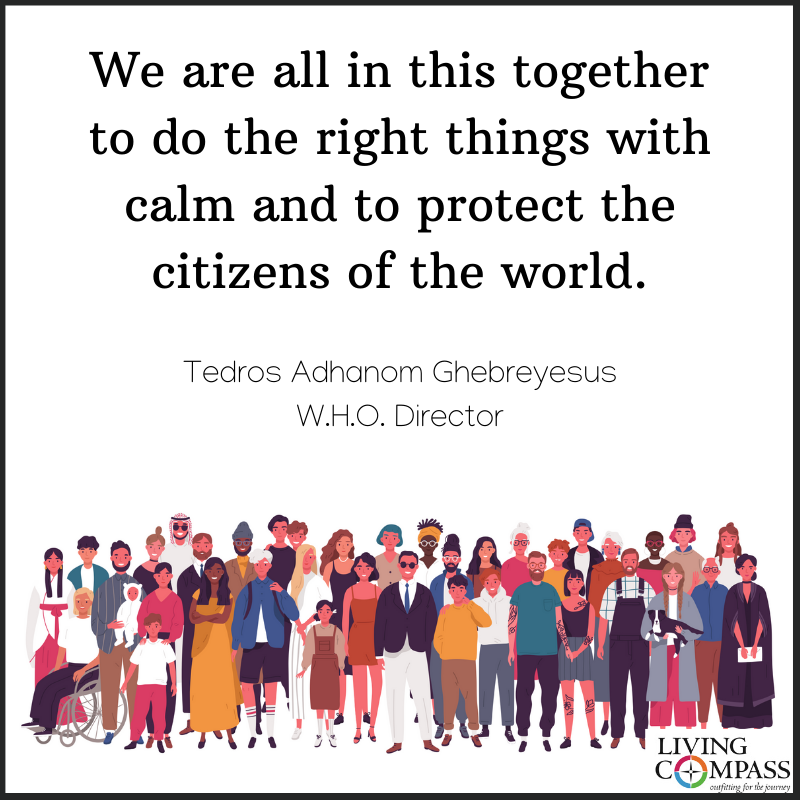The Ground Begins to Soften, Easter 2020
( Several years ago, I wrote a column similar to this for Easter. What I wrote seems particularly relevant for the unprecedented circumstances we now find ourselves in, and so I have updated it for this year.)
For those of us who celebrate Easter in the northern hemisphere, we are blessed to be surrounded by abundant symbols of resurrection and rebirth, including the new buds on the trees, the return of birds that have been south for the winter, the lengthening of the days, and the overall warming temperatures. For me, though, there is one sign in nature that is the most meaningful indicator of new life this time of year, one that is probably easy to overlook…the ground begins to soften.
First, the snow melts, and then gradually, the ground that has been covered and frozen all winter begins to thaw and soften. One thing I love about the ground starting to soften is that I am able to move my runs off the concrete sidewalks and onto the soft earth, which provides a welcome cushion for my aging joints. The softening ground is moist this time of year, and I love the squishing sound that my shoes make with every step I take. The softer ground also means those with green thumbs are getting back to digging in the earth of their gardens. The softer earth gives rise to so many beautiful stirrings of new life.
This year, the celebration of Easter (as well as Passover) occurs in the midst of a pandemic. Communal celebrations will not happen, and friends and extended families will make the courageous choice not to gather. It is a time of significant vulnerability and loss for all of us. And as with all experiences of vulnerability and loss, we have two choices. We can choose to harden our hearts, like the hardened earth of winter, as a way to try and protect ourselves. Or we can choose to soften our hearts amid the vulnerability and fragility we are experiencing, becoming like the soft earth of spring. Choosing the latter makes it possible for the seeds of Easter hope to take root more easily and deeply.
As we celebrate Easter this weekend, we are not just celebrating something that happened almost 2000 years ago; we are also celebrating the truth that God continues to make things new, that God continues to bring life out of loss, and that new life will follow even this pandemic. The image of the ground beginning to soften is a vivid metaphor reminding us of what it can feel like when God is beginning to do a new thing in our lives.
I know this feeling in my own life, and I see it in my work as a minister and a therapist as well. People usually come to see me because life has become hard for them, literally. They come in with hearts, minds, souls, and even bodies that have become hardened and rigid. They come alone, or they come with their loved one, or they bring their whole family because everyone has become hardened to each other. This hardness is usually the result of some frozen sadness or hurt, or unresolved conflict or grief, and the hardness has built up over a long time.
Why have they come? Because deep down, they don't want to be hard-hearted, hard-minded, or hard-spirited, toward themselves or toward the people they love most. Deep down, a small, still voice longs for something different. And because they are willing to listen to this longing, slowly, imperceptibly at first, a miracle begins to happen. The ground begins to soften.
The softening heart/mind/soul, just like the softening earth, soon gives rise to all kinds of miraculous new life. People forgive each other, and they forgive themselves. People who haven't done so for a long time touch and hug again. There is laughter where once there was criticism and hurt. There is joy where there once was shame and guilt. Grief gradually loosens its grip. There is freedom where there once was bondage. There is life where there once was death. Resurrection happens.
There is always a risk in the choice to soften our hearts and allow the seeds of Easter hope to take root, but it is always a risk worth taking.
To all who celebrate this holiday, we at Living Compass wish you a Happy Easter. May all of our hearts and souls be softened today by the presence of the One who continues to call forth new life in the midst of loss.
Subscribe Now to Weekly Words of Wellness:
Click the button below to signup for the e-mail version of Weekly Words of Wellness. This weekly article can be shared with your community electronically and/or used for group discussion.
You can unsubscribe at any time.





